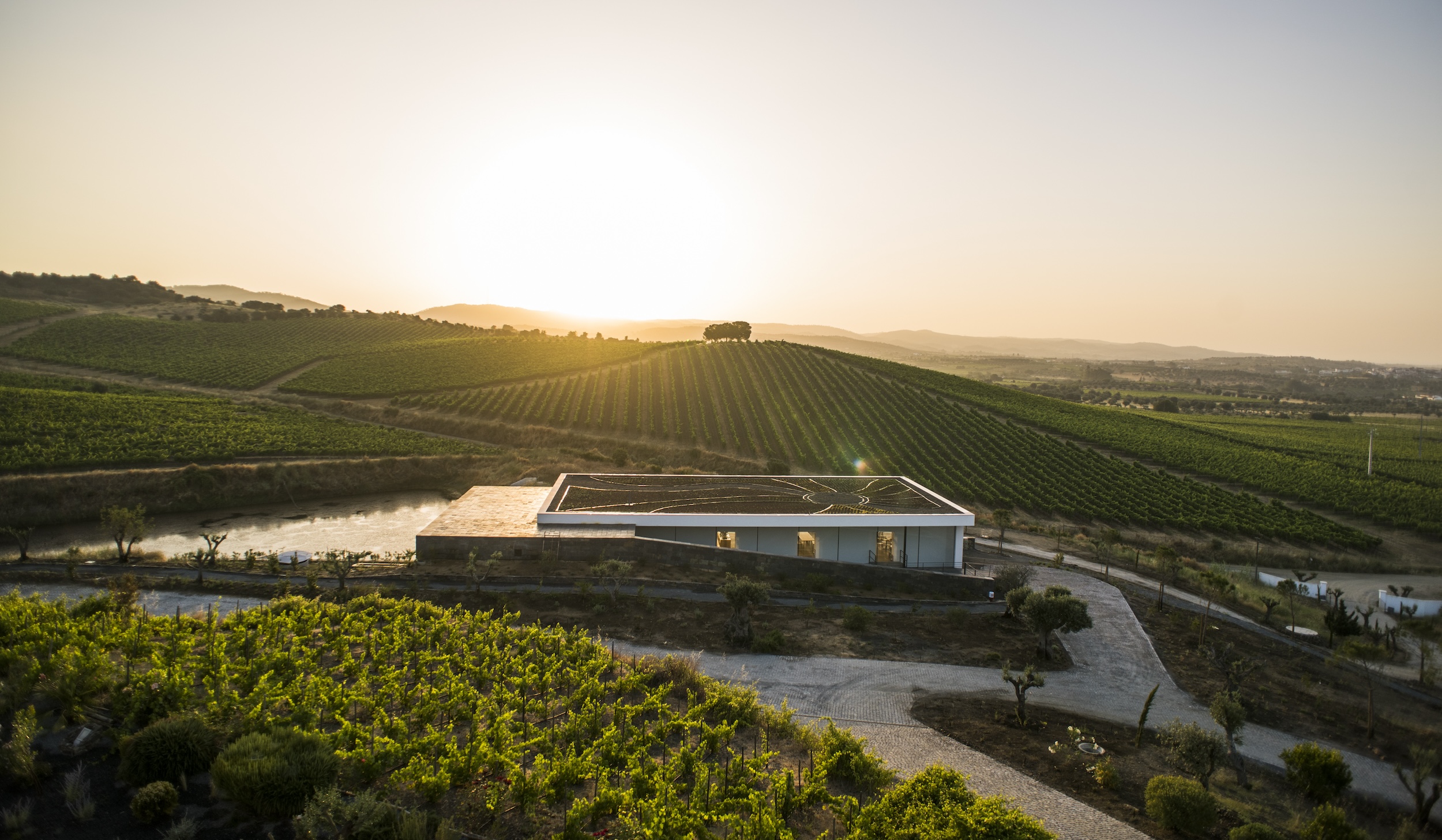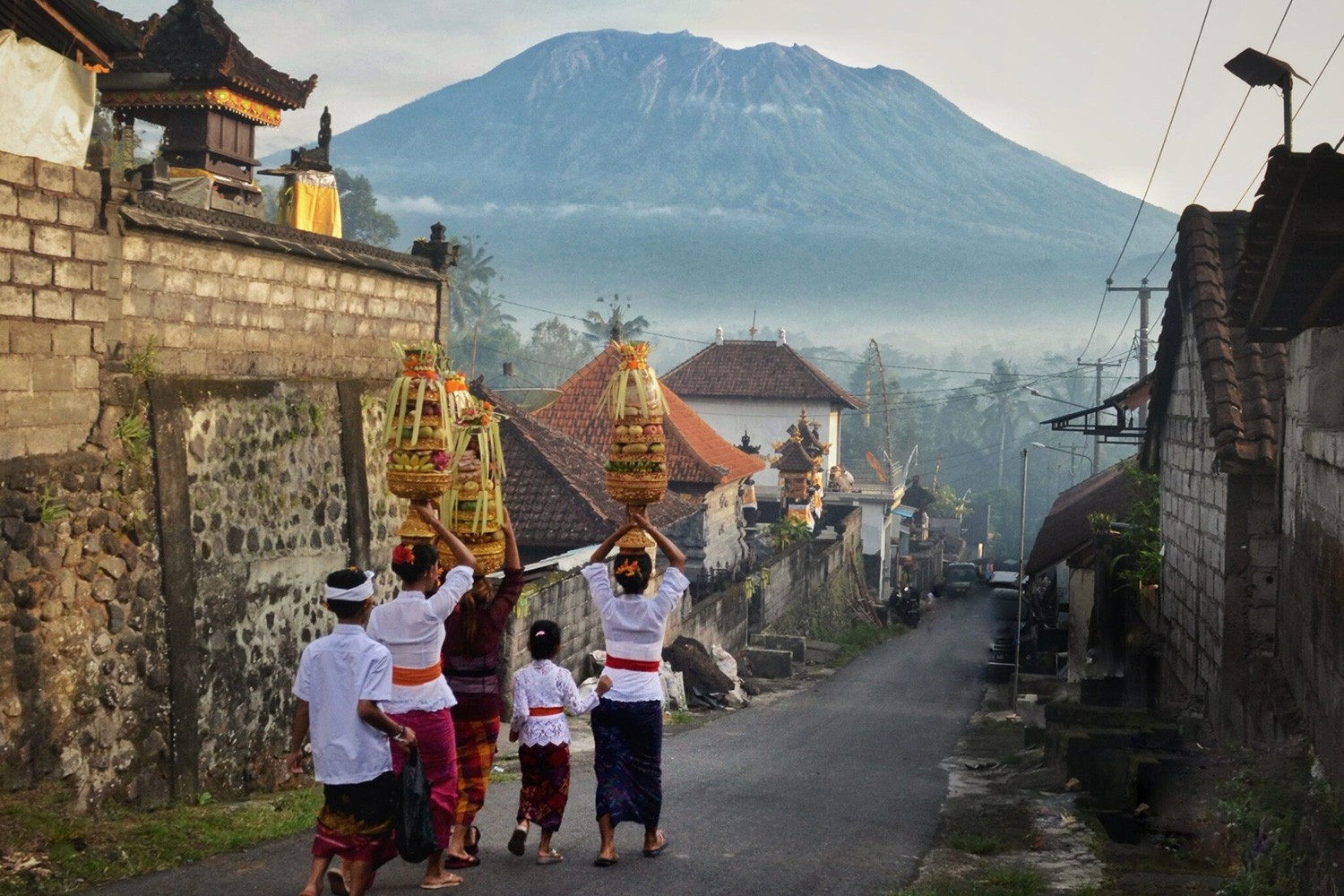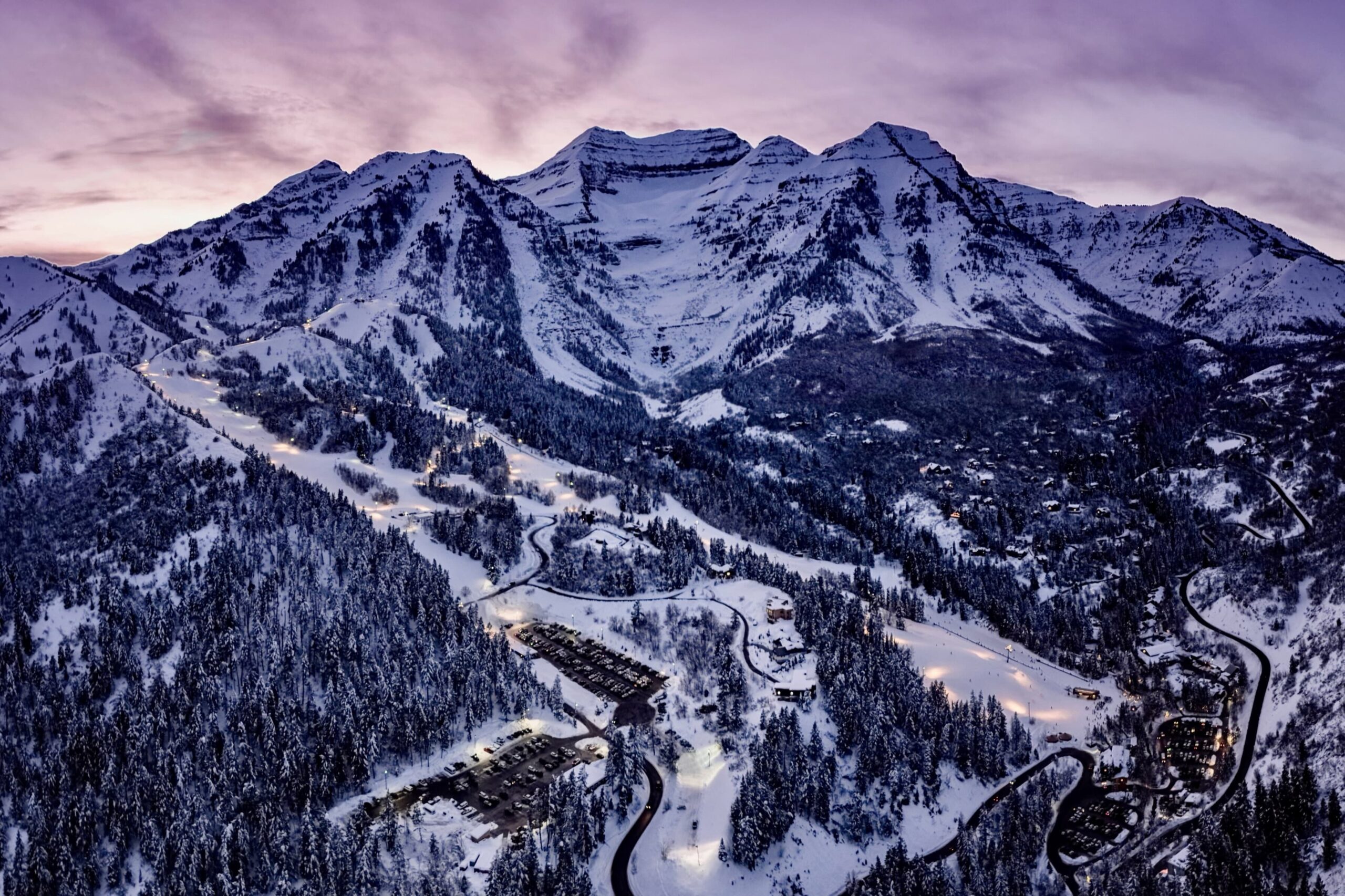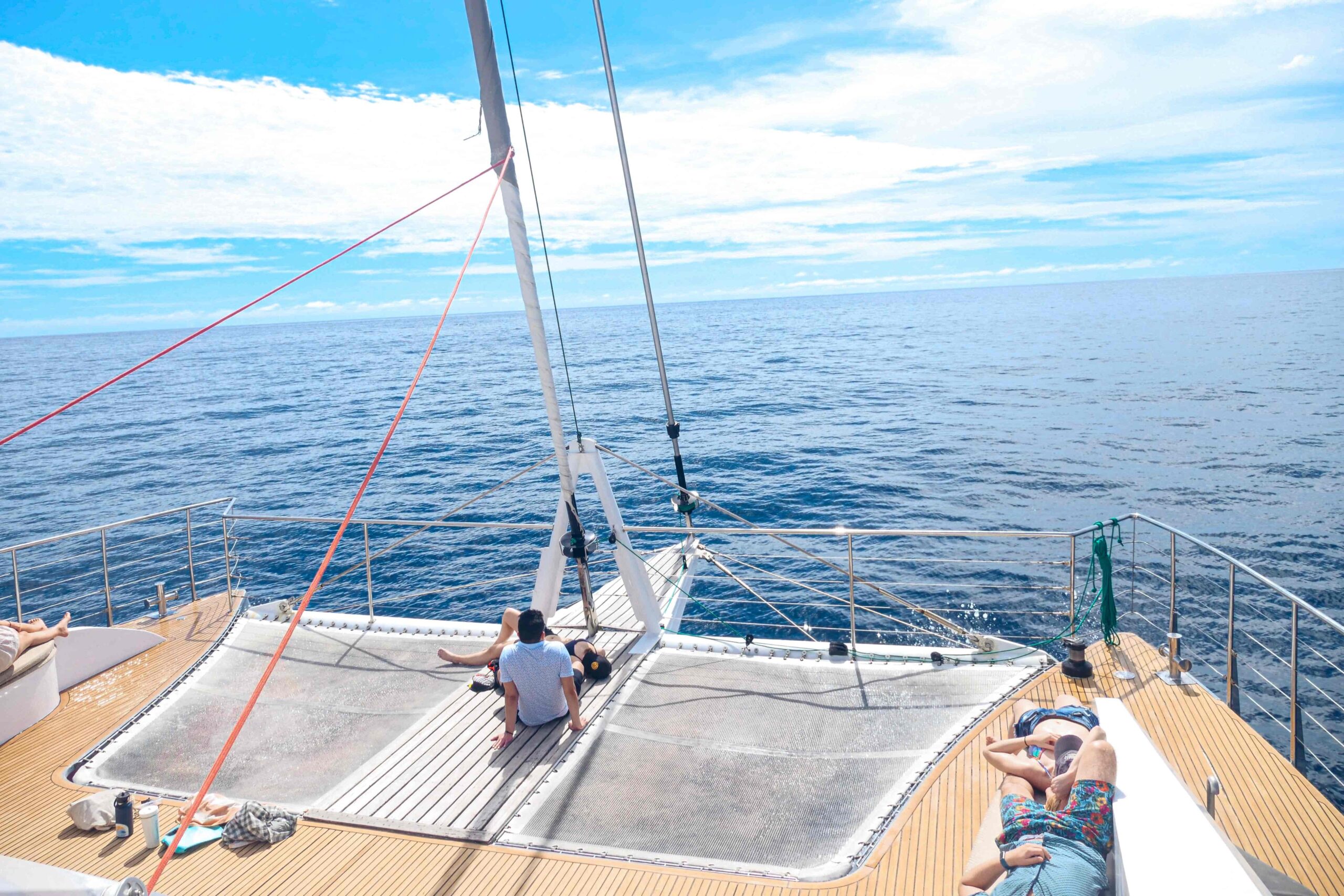As a vegan and writer focused on sustainability, I once resented visiting wine regions famous for their red wines and meat-centric pairings. Places like Portugal’s Alentejo, a bastion of red blends, lamb, and pork, or Argentina, a country rich in ‘gaucho’ culture’s Malbec and asado. Even tiny Uruguay, home to Tannat — and the world’s highest per capita number of cows (four to one).
But no more. Recent studies predict a 12% growth in plant-based diets over the next ten years. Concurrently, consumers clamor for more sustainable food and wine options.
This means more wine regions typically associated with red meat and wine like Alentejo, Argentina, and Uruguay are now catering to sustainably-minded vegans like me.
Here are a few of my favorite places to seek out vegan-friendly fare in these carnivore-catering wine regions:
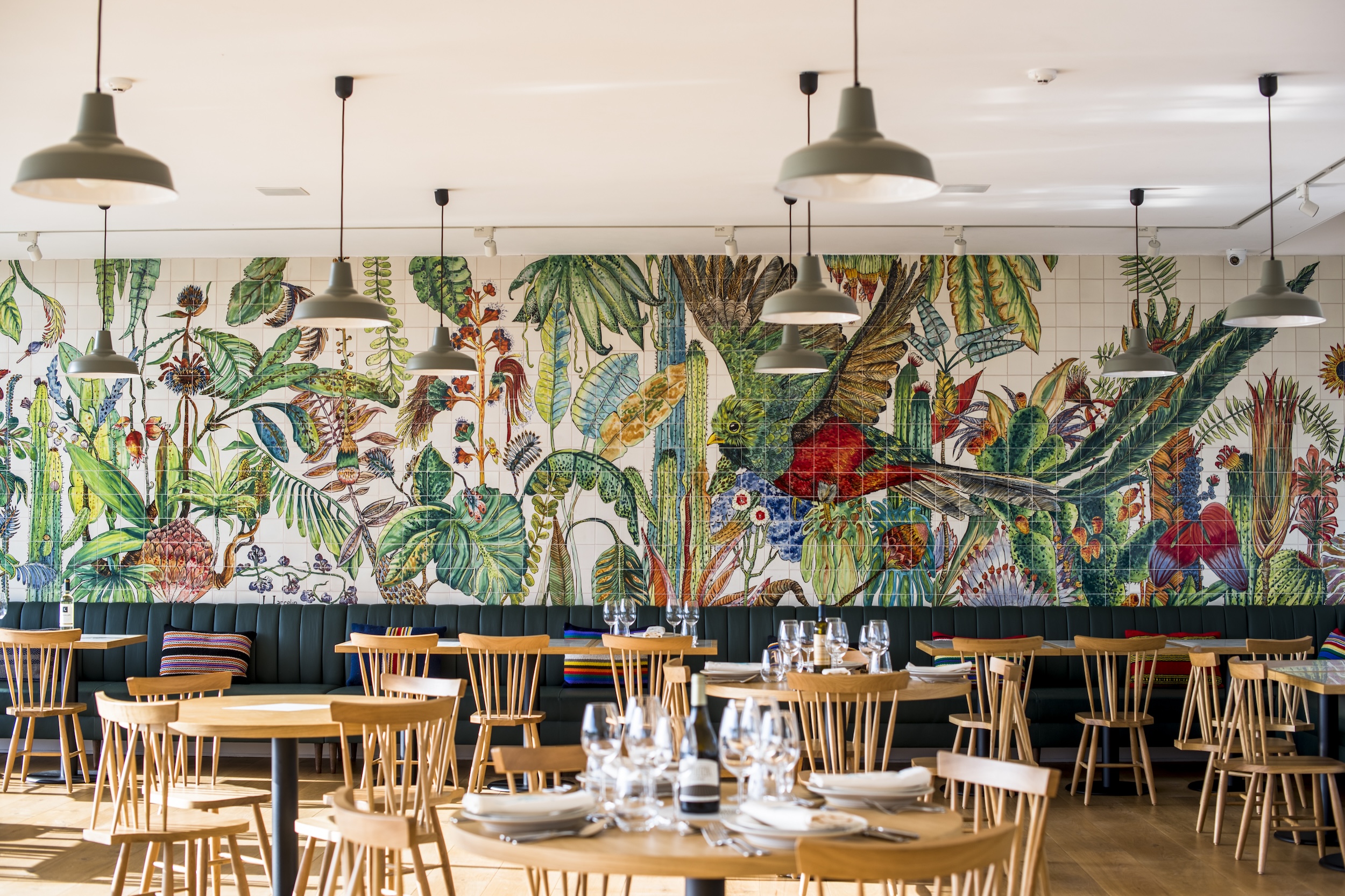
Quinta do Quetzal Restaurant. Image courtesy Quinta do Quetzal
Quinta do Quetzal, Vidigueira, Alentejo
North Stars: Community Support, Waste Management, Heritage Value
Drawing its name from the quetzal, a green, red-breasted bird revered by the ancient Aztec and Mayan cultures, this sprawling estate in Vidigueira includes an airy restaurant, circular winery, working farm, and arts center.
“At Quinta do Quetzal, sustainability is a deeply rooted commitment that we’ve pursued consistently over the years,” says Chef João Mourato. “We ensure that ingredients used in our restaurant are sourced through practices that respect and preserve the environment.”
Consequently, the restaurant forges a close bond with community farmers. “For example, one of this autumn’s vegan highlights, cauliflower steak with acorn purée and beans, was inspired by the season’s bounty of cauliflower and acorns,” says Chef João, who collaborates with sommelier José Santos. “We carefully select wines that enhance the envisioned flavors, refining the dish with these pairings in mind.”
Case in point: Quetzal Reserva 2021 Branco, made from 100% Antão Vaz, one of Alentejo’s most versatile white grapes. Its tropical fruit notes, combined with a slight toastiness and crisp minerality, enhance the savory fall veggies, legumes, and nuts.
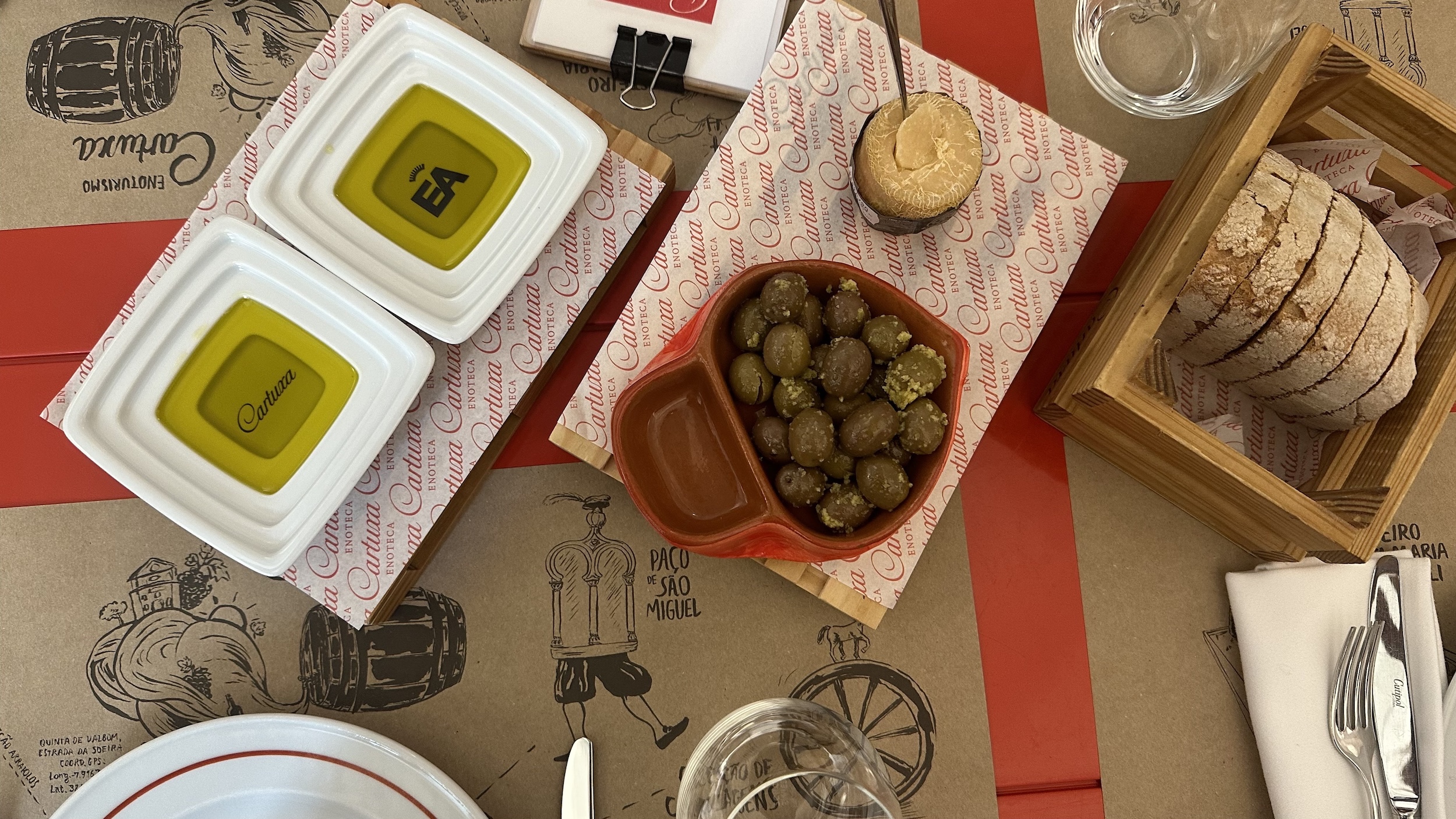
Enoteca Cartuxa. Image by LM Archer.
Enoteca Cartuxa, Êvora, Alentejo
North Stars: Production & Consumption,Waste Management, Community Support
This whitewashed eatery nestles near the ancient Roman Temple of Diana, within the walled UNESCO World Heritage village of Êvora, Alentejo’s capital.
“Sustainability is tradition,” says Gilmer Grattan, export manager for Enoteca Cartuxa. ”[We] focus on dishes that are traditional to Alentejo, keeping true to the location, and history.”
Adega Cartuxa’s 2022 Rosé Colheita Sparkling Wine, fashioned from 100% Touriga National, proves perfect for apéros, served with Alentejo bread, estate olive oil, and regional olives.
Generally, the Portuguese term ‘colheita,’ often associated with port wine, means ‘harvest’ or ‘vintage.” This pretty-in-pink pour also undergoes a bit of oak barrel aging, lending it a textured complexity.
“Wines from the Alentejo are complex, and need to be enjoyed with food, vegan or not,” says Gilmer. “Our dishes are thought about from a nutritional perspective, using the freshest ingredients, highlighted by the native grapes from Alentejo.”
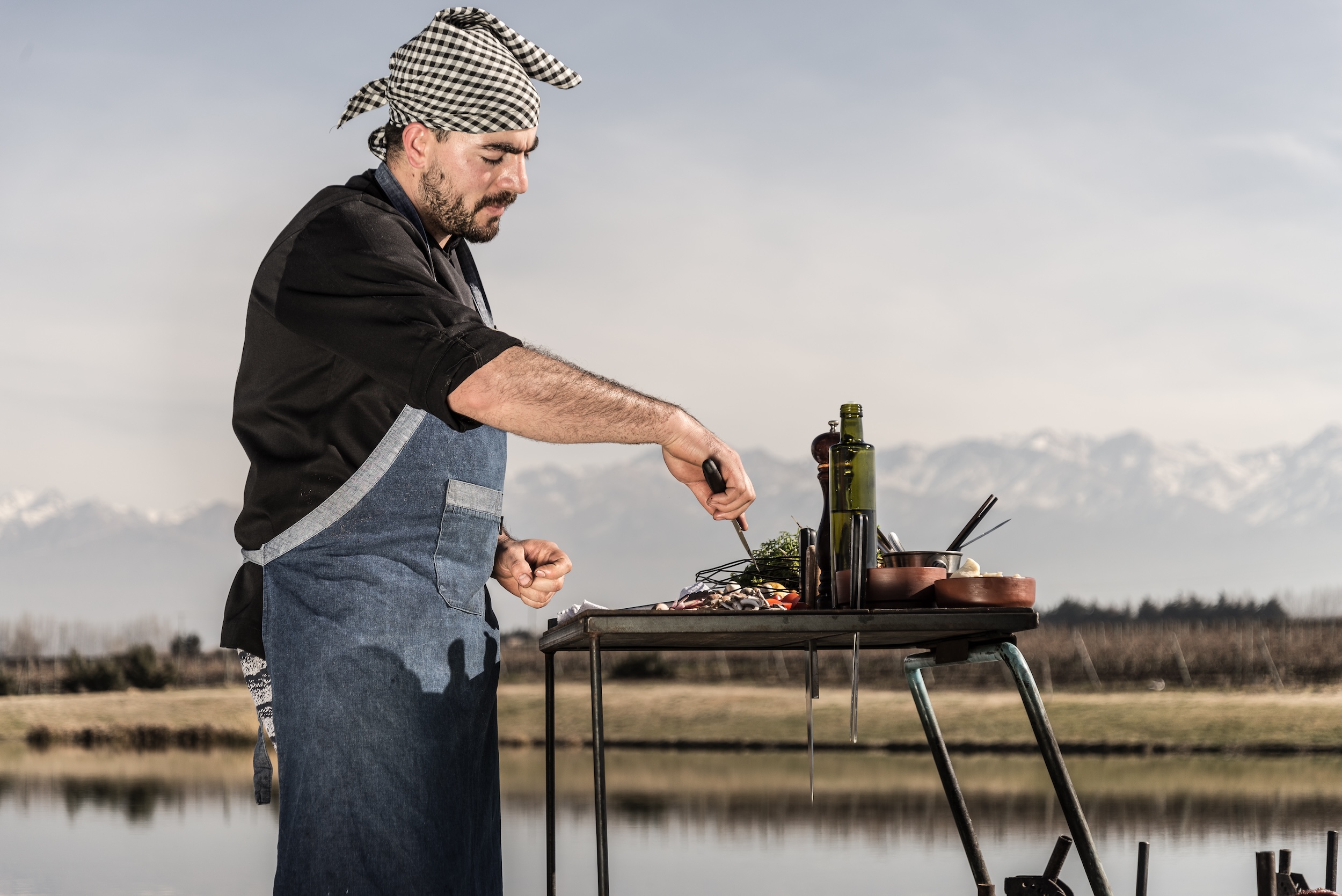
Domaine Bousquet Gaia Restaurant. Image Domaine Bousquet
Domaine Bousquet Gaia Restaurant, Mendoza, Argentina
North Stars: Certifications, Community Support, Water Management
Located in Mendoza, Domaine Bousquet looks towards the imposing Andes Mountains in the Tupungato Valley. (Tupungato means “place to watch stars” in the native Huarpe language.)
Here, its Gaia Restaurant revolves around a seasonal, five-course menu, many ingredients grown in-house by executive chef Adrian Baggio.
Each course must contain at least one organic ingredient, which Chef Adrian augments with local organic grains, legumes, flour, and sugar. In fact, the first two courses comprise 100% vegan selections, including a 100% organic second course of whole organic rice, peas, and leeks, paired with Domaine Bousquet’s Organic (Sulfite-Free) Virgen Chardonnay.
“We permanently have a vegan option so, when visitors come, we can offer them a menu that was previously designed and paired with our organic and vegan wines,” says Domaine Bousquet’s marketing director, Ignacio Martinez.
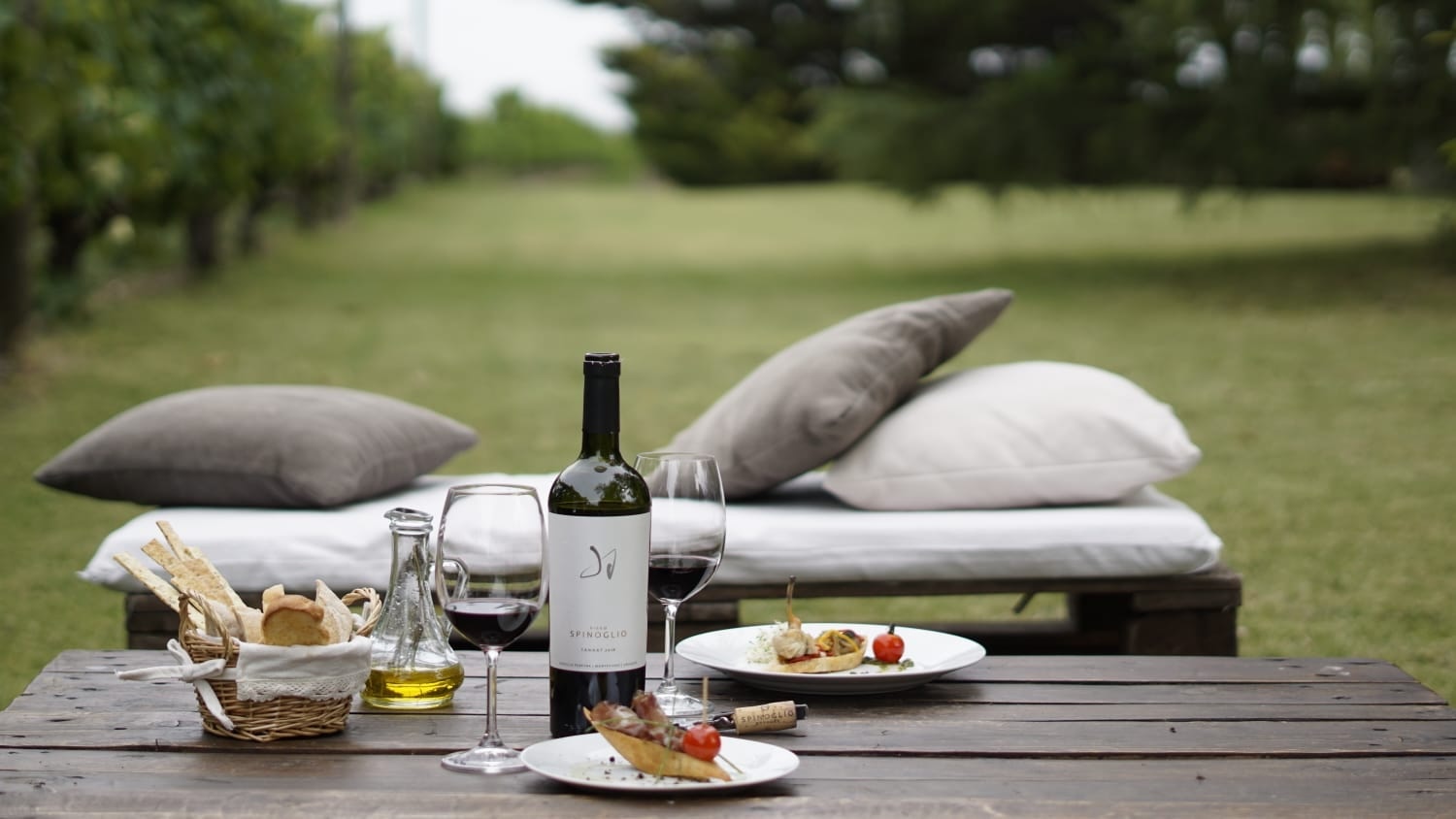
Bodega Spinoglio MonfrÀ. Image courtesy Bodega Spinoglio.
Bodega Spinoglio MonfrÀ Restaurant, Montevideo, Uruguay
North Stars: Community Support, Production Consumption, Waste Management
MonfrÀ Restaurant has become a go-to gathering spot. Boasting a relaxed vibe from its open-air, straw-roof, the venue is set against the gracious lawns and vineyards of Bodega Spinoglio.
Located in rural Montevideo, the winery recently re-purposed an old cistern into a barrel room, upcycled a four-unit ‘vineyard hotel’ from 150,000 liter (~40,000 gallon) water tanks, and upgraded infrastructure to improve efficiency.
As the property’s main dining venue, MonfrÀ pays a nod to the family’s Piedmont, Italy origins. (‘Monfra’ means Monferrato di Casale in the Piedmontese language.)
“We have some products of our own, but we also work with local producers,” says fourth-generation Cecilia Baldi, Bodega Spinoglio’s enologist and tourism director. “We believe this is what sustainability is about.”
Wine pairings follow the adage “what grows together, goes together.” Notably, the Diego Spinoglio Single Vineyard 2023 Chardonnay harmonizes well with the wild mushroom crostini, fresh herbs, and citrus gastrique.
“In wine, we can find a great variety of descriptors that are the same as those found in the whole range of fruits and vegetables,” says Baldi. “Let’s not forget that wine is produced from a fruit, so it shares the same compounds as other vegetables and fruits that exist in nature.“
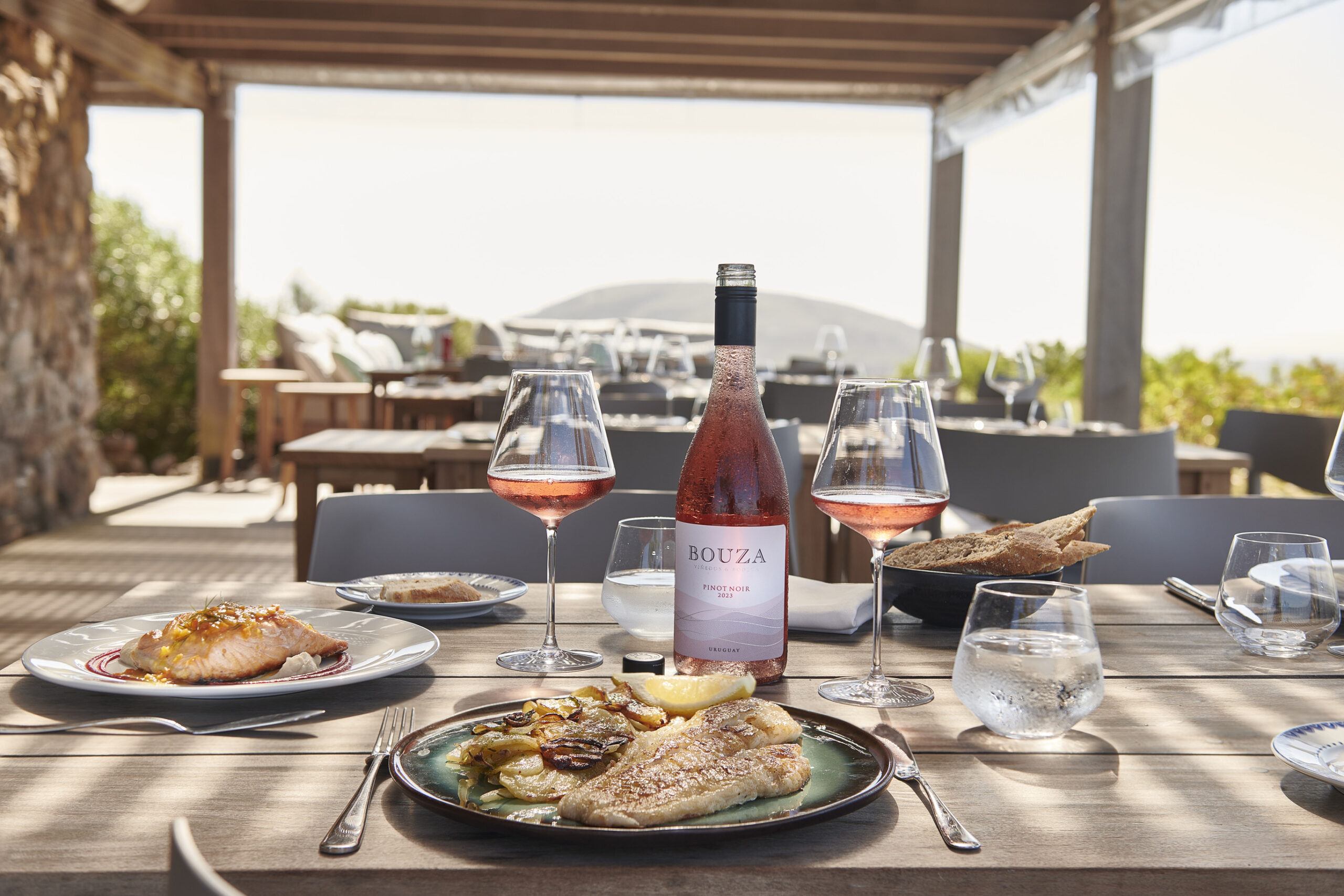
Las Espinas. Image courtesy of Bodega Bouza.
Bodega Bouza Las Espinas Restaurant, Maldonado, Uruguay
North Stars: Waste Management, Water Management, Wildlife Ecosystems
The cliffside Bodega Bouza Las Espinas Restaurant overlooks the Atlantic Ocean in Maldonado. “The family has always been involved in the food industry, even before having the winery, with the focus on making the highest quality food possible by using the best ingredients,” says Cristina Santoro, Bodega Bouza’s exports and marketing manager. “So the search for sustainable, local products started, along with those which we chose to produce.”
Thus grandfather Don Juan Bouza’s Galician-style “tetilla” cheese and Las Espinas’ free-range lambs and cattle share the menu with plant-based cuisine, too.
“We do not have a vegan pairing menu,” says Santoro. ”However, we do have special dishes to pair with wine for the occasions when we receive vegan customers, based on a wide variety of fresh-grown vegetables, and very good rice.”
Aside from Tannat, Bouza offers a surprising array of white and light bodied wines. “We have a variety of white wines and a few reds that pair well with plant-based fare because of their good acidity and freshness,” adds Santoro. “Our Albariño, Chardonnay, our Pinot Noir rosé and even the red Pinot Noir pair well.”
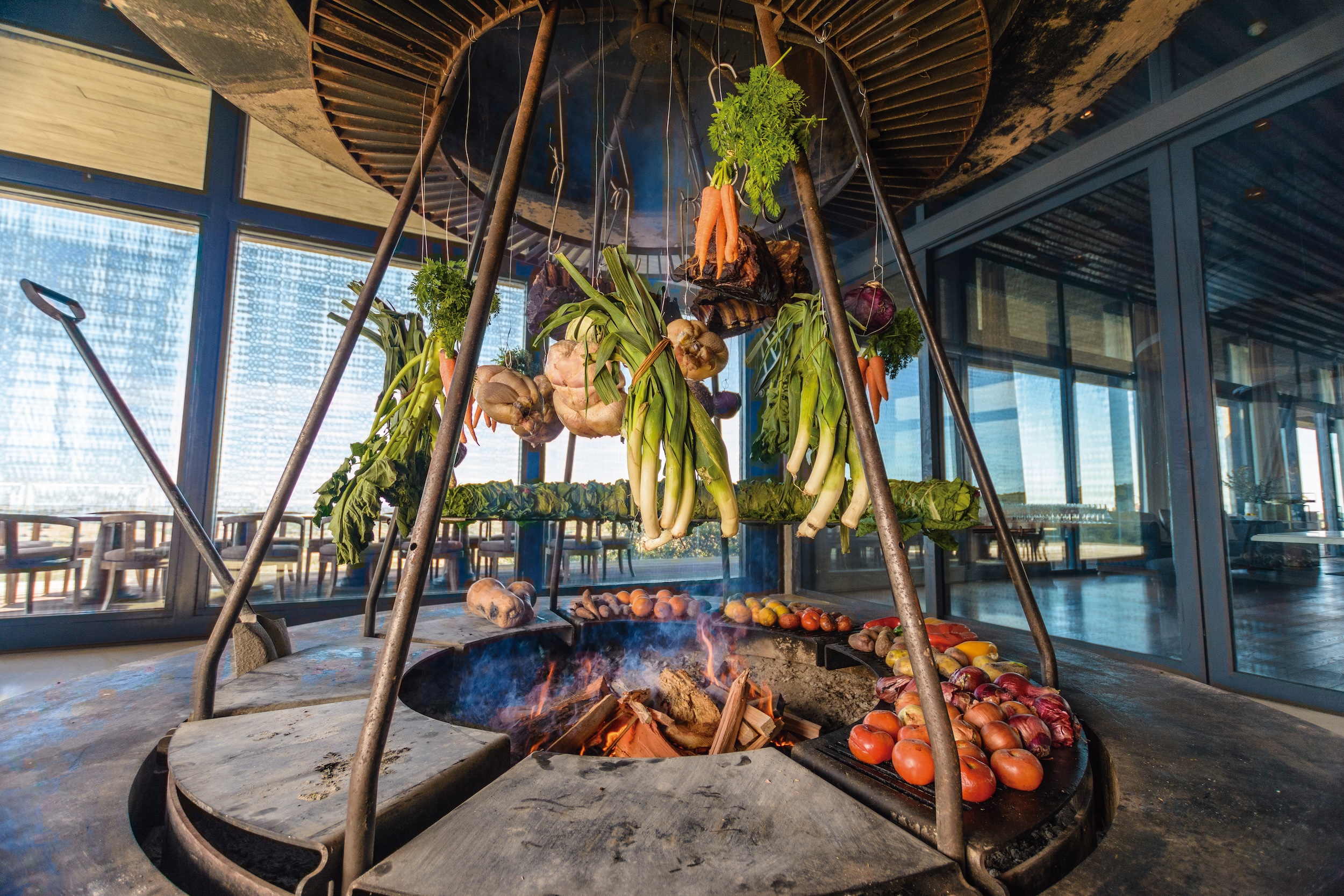
Bodega Garzón Restaurant. Image Courtesy of Bodega Garzón
Bodega Garzón Restaurant, Garzón, Uruguay
North Stars: Certifications, Community Support, Carbon Footprint
With sweeping views of Uruguay’s eastern Atlantic coast, LEED-certified Bodega Garzón‘s restaurant pivots around fire – and vegetables.
Celebrity chef Francis Mallman designed the culinary program for this sleek, glass-walled restaurant. “Francis Mallmann has served as the culinary ambassador of Bodega Garzón Restaurant since the inception of the project, which is distinguished by its focus on fire cooking,” explains Andrea Pascual, Bodega Garzón’s Hospitality Director.
The menu updates four times a year, showcasing Uruguayan dishes such as clay oven-baked fainá (chickpea flour pancake) with pea and fennel salad, paired with Garzón 2023 Albariño from a single vineyard. “This Albariño’s minerality adds refreshing balance to the dish, enhancing its fruity and subtly vegetal notes for a harmonious experience,” says Pascual.
Another popular combination pairs a sweet potato dish with grilled fennel, rainbow chard, seed cracker, and sriracha aioli with Garzón Petit Clos Cabernet Franc 2020. “The wine’s naturally high acidity complements the sweetness of the sweet potato, creating a unique, vibrant match,” he adds.
“Mallmann’s reinvention of vegetarian cuisine, as detailed in his book “Green Fire” has paved the way for a new stage in his restaurant, with a focus on revisiting recipes,” concludes Pascual. “At Garzón, we already had options perfectly adapted to the vegan public who visited us.”

L.M. Archer is an award-winning contributor to numerous publications worldwide including The Drinks Business, Full Pour, Extra Brut, and Washington Tasting Room Magazine. Her work showcases sustainability, and its intersection with sparkling wine, culinaria, and culture. Follow L.M. on IG @Imarcherml.


